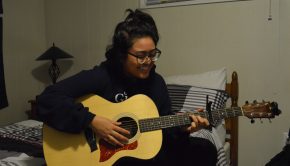Humber students react to new cultural study
The latest cultural research has Humber students thinking critically about diversity.
The Angus Reid Institute recently released a study called “What makes us Canadian? A study of values, beliefs, priorities and identity.” Results show that 68 per cent of Canadians surveyed think that minorities should try harder to fit in to “mainstream” Canadian society. This includes shifting away from their own customs and religious practices.
Ray Xu, leader of the Mandarin Christian Fellowship at Humber, doesn’t feel the need to change for others.
“I don’t think we need to make any changes inside us,” said Xu regarding culture and views.
Xu disagreed with not being inclusive.
“Give up on the thinking of ‘you guys are sub-ordinary,’ we have to think we are all equal and all [a part of] the human race,” said Xu.
Xu isn’t the only leader of a multicultural group at Humber College criticizing these ideas. Hassan Elbaytam, president of the Muslim Student Association shared a different view on what Canadian culture really is to him.
“Overall, the way I see it there is no ‘Canadian’ culture per se, it’s more the combination of all the cultures that came together. So saying that you should assimilate [your] culture into ‘Canadian’ culture is counterproductive,” said Elbaytam.
However, Elbaytam said Canadians need to talk more about these sensitive topics if we are to ever come to a common understanding.
“We must encourage that conversation, because that will breed more acceptance, breed more understanding of how people think, how different ideas come to mind,” said Elbaytam.
Kinesiology student Laura Darakjian was surprised at how the findings by the Angus Reid Institute compared Canadians to our American neighbours.
There may be more people in total in the United States who believe minorities should assimilate to a mainstream culture. But the study showed the percentage was actually higher for Canadians.
“When compared side by side to the U.S. statistics, I was extremely shocked that Canadians were less culturally accepting [by percentage] than our U.S neighbours,” said Darakjian.
As far as how to go about educating others, she had an idea.
Darakjian said schools should “provide incentive for students to take multiple language courses and have teachers incorporate lessons about the traditions that relate to cultures that speak that language.”





